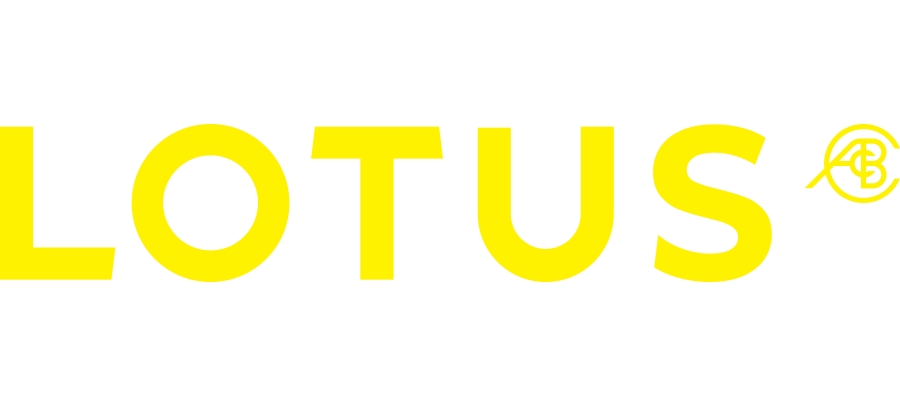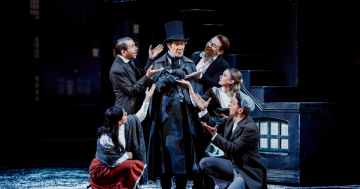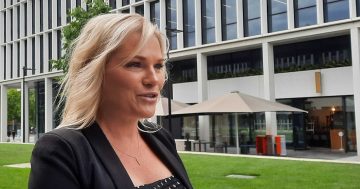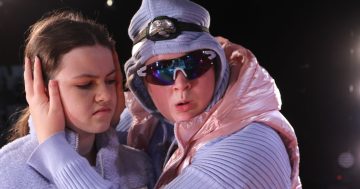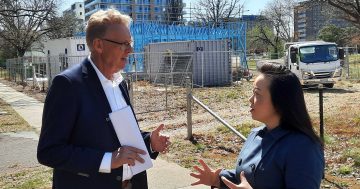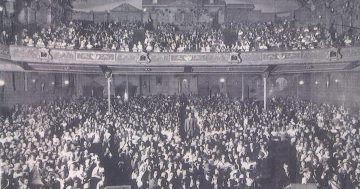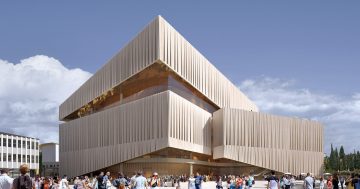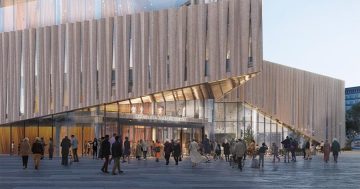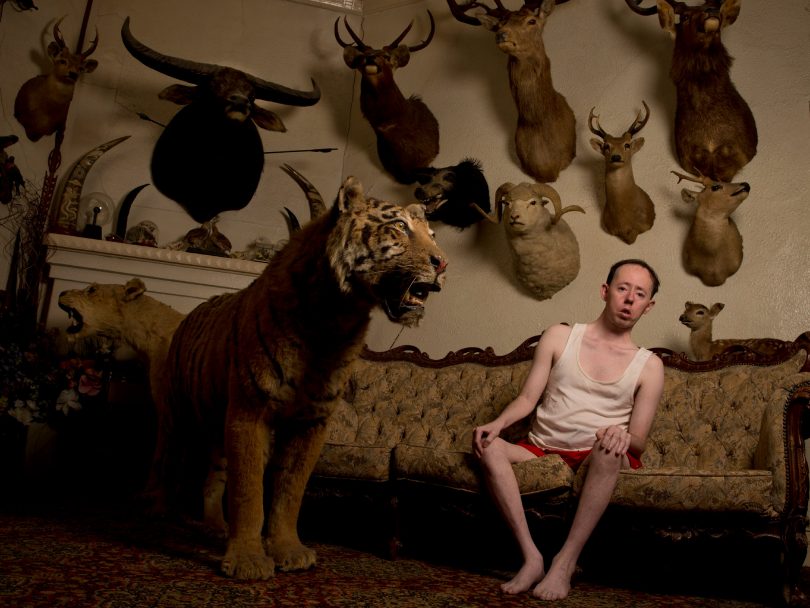
Simon Laherty performs in The Shadow Whose Prey the Hunter Becomes. Photo: Jeff Busby.
In the US in the 1970s, 32 men with disabilities were placed in a government work program at a regional turkey processing plant.
About 43 years later, those men were discovered working in the same plant, being paid the same meagre wage.
It is one of the many stories explored in Back to Back theatre company’s The Shadow Whose Prey the Hunter Becomes, which comes to Canberra Theatre Centre next month.
This example reveals a sort of insidious apathy in society’s treatment of people with disabilities, according to Back to Back artistic director Bruce Gladwin.
“It was easy for that community, which was a small community, to overlook this level of exploitation of men with intellectual disabilities,” he points out.
An Ibsen award-winning company, Back to Back creates contemporary performances that give voice to social and political issues in a way that speaks to us all, imagined from the minds and experiences of a unique ensemble of actors with a disability.
It exists not only to elevate social inclusion for people with disabilities but to achieve artistic excellence.
The Shadow Whose Prey the Hunter Becomes is no exception.
Featuring an ensemble cast of people with disabilities, who also helped write and produce Back to Back’s rotating repertoire of original shows, it is a story about a public meeting – the type you might expect in a certain kind of democracy.
During the one-hour meeting, a group of disability activists raise concerns over social and political issues both historical and present.
One example echoes the Royal Commission into Violence, Abuse, Neglect and Exploitation of People with Disability.
Another is the Magdalene Laundries in Ireland – also known as the Magdalene asylums – where unwedded mothers, or “fallen women”, were taken to discreetly give birth and adopt out their babies. It was later discovered a high percentage of the women subjected to dire servitude in the Laundries were mentally disabled.
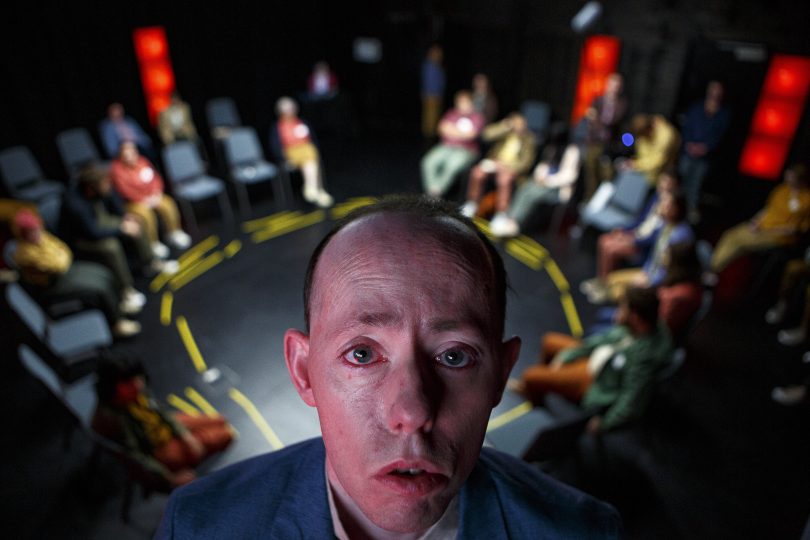
A still from the film adaptation of The Shadow Whose Prey the Hunter Becomes titled Shadow. Photo: Tao Weis.
Needless to say, the approach in Shadow is direct, down to the public meeting format.
“Public meetings used to have their place but the concept is now quite old school. But I think in some ways it heralds the urgency of the issues the characters are bringing forward,” Bruce says.
In the beginning, a title appears that reads ‘In a small community in Geelong, Australia’ – but Bruce says the show could easily take place in any town in Australia or, indeed, the world.
“The issues tackled are universal,” he explains.
As the story progresses, the actors begin to draw parallels – a powerful tool for empathy and genuine audience connection – with a future in which beings with Artificial Intelligence are seen as first-class citizens.
“The characters essentially demonstrate that how we treat people now is how the general populous will be treated in that reality,” Bruce explains.
“The moral and ethical framework we work in now is the one we could be subjected to in the future. Our audiences’ liberation is tied to the characters’ liberation.”
Bruce says the actors drew on their own experiences to write the show.
“They had to go through the education system and try to find employment,” Bruce says.
“Issues around bullying, over medication, behaviour modification programs – some of the actors have lived experiences that inform their work.
“Shadow is not a confessional, though, it’s a piece of fiction. But the issues they’re drawing on are real, and they affect us all whether we realise it or not.”
Now a company that performs internationally, Back to Back started in the mid-80s when the political and social context of disabilities was shifting to a de-institutionalised environment, according to Bruce.
People who had lived in institutions had to find their new place in the world; some found it with the community theatre company.
“Back to Back started in theatre workshops in Geelong to support that deinstitutionalisation process,” Bruce says.
“We’re making works we feel are meaningful and exploring social and political issues that are universal. It’s not strictly thematic work around disability, more power structures that function in our society. They’re issues we’re all dealing with.”
The Shadow Whose Prey the Hunter Becomes will show at the Canberra theatre centre from 11 to 13 May. Visit the Canberra Theatre Centre website for tickets and more information.
